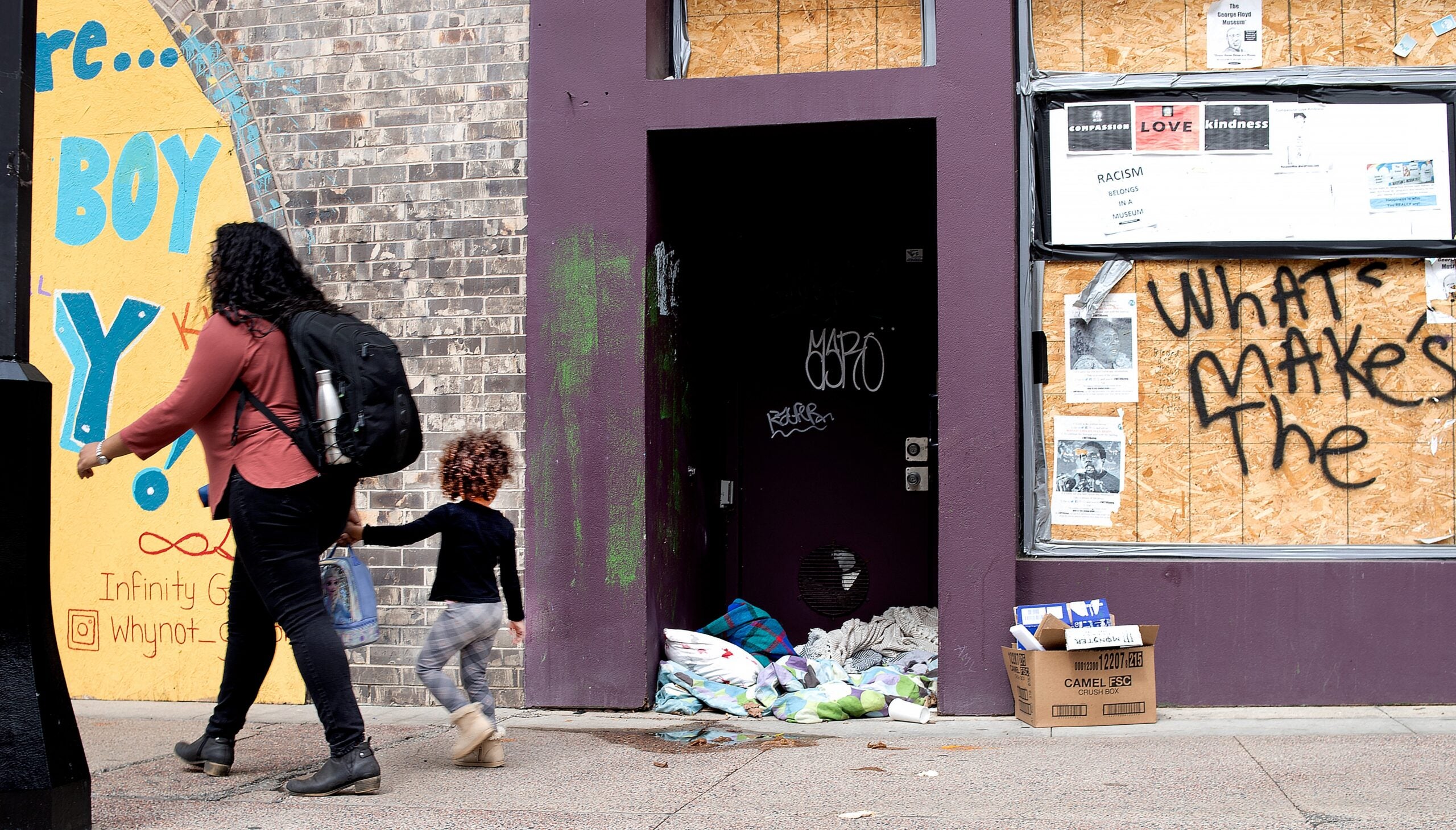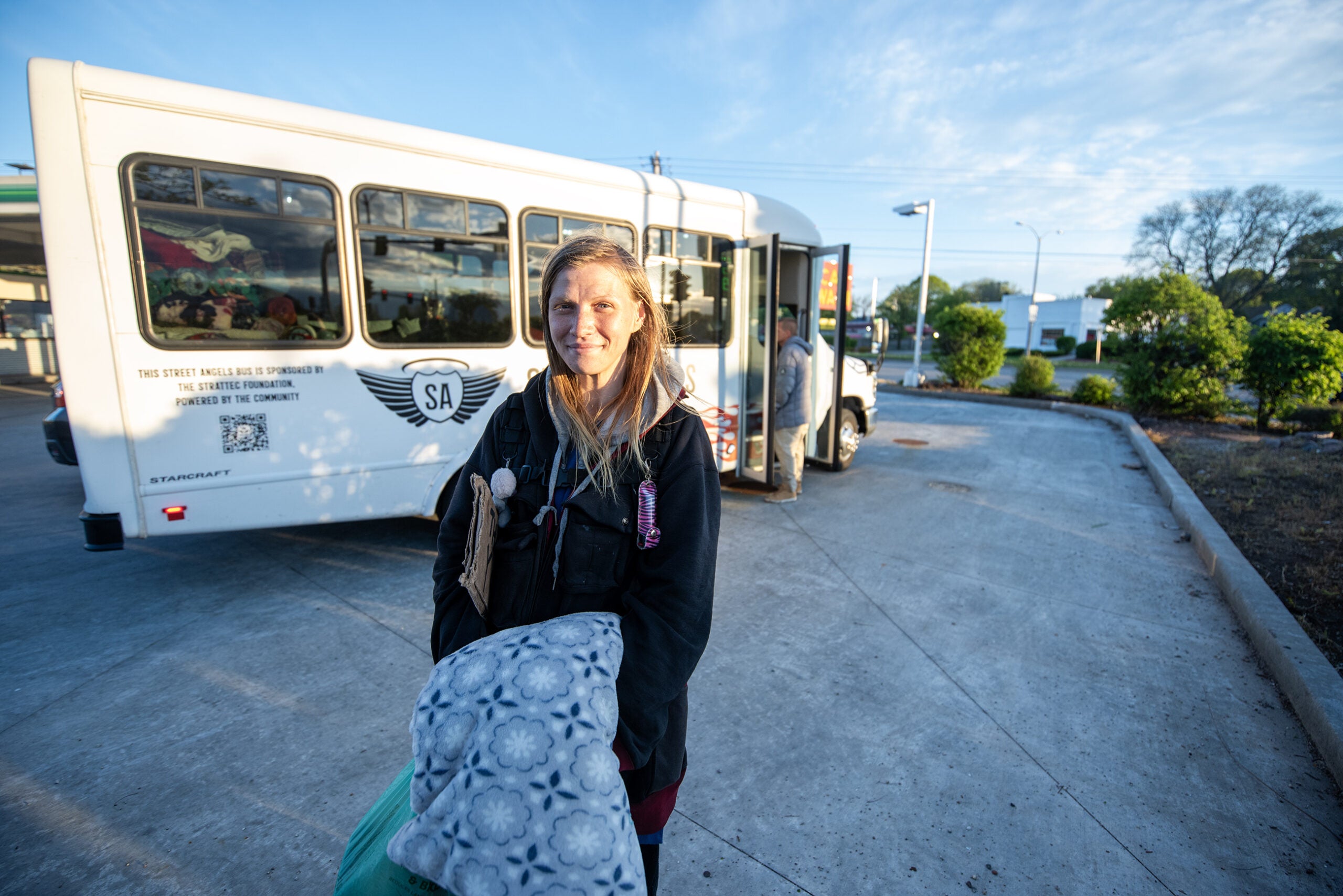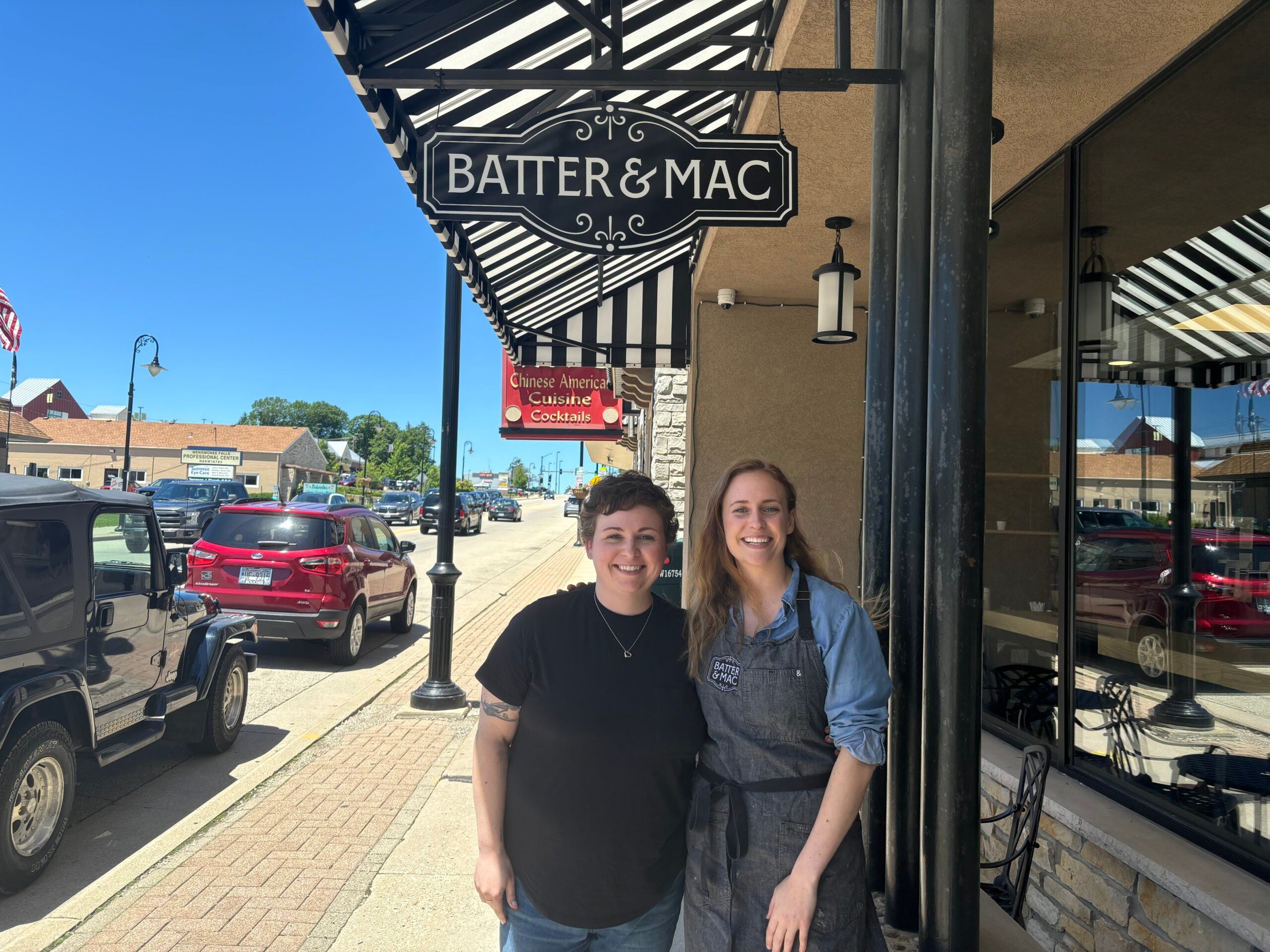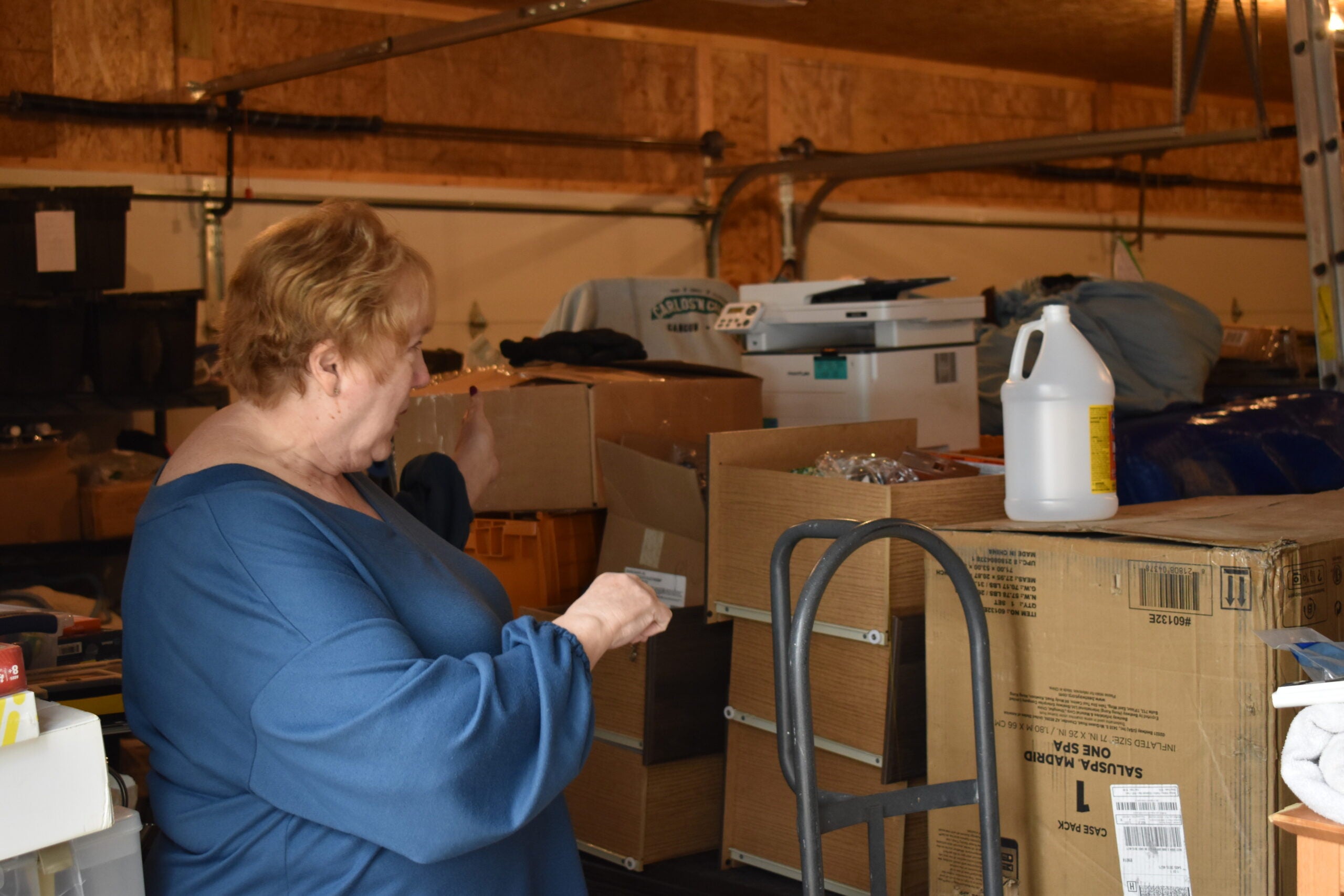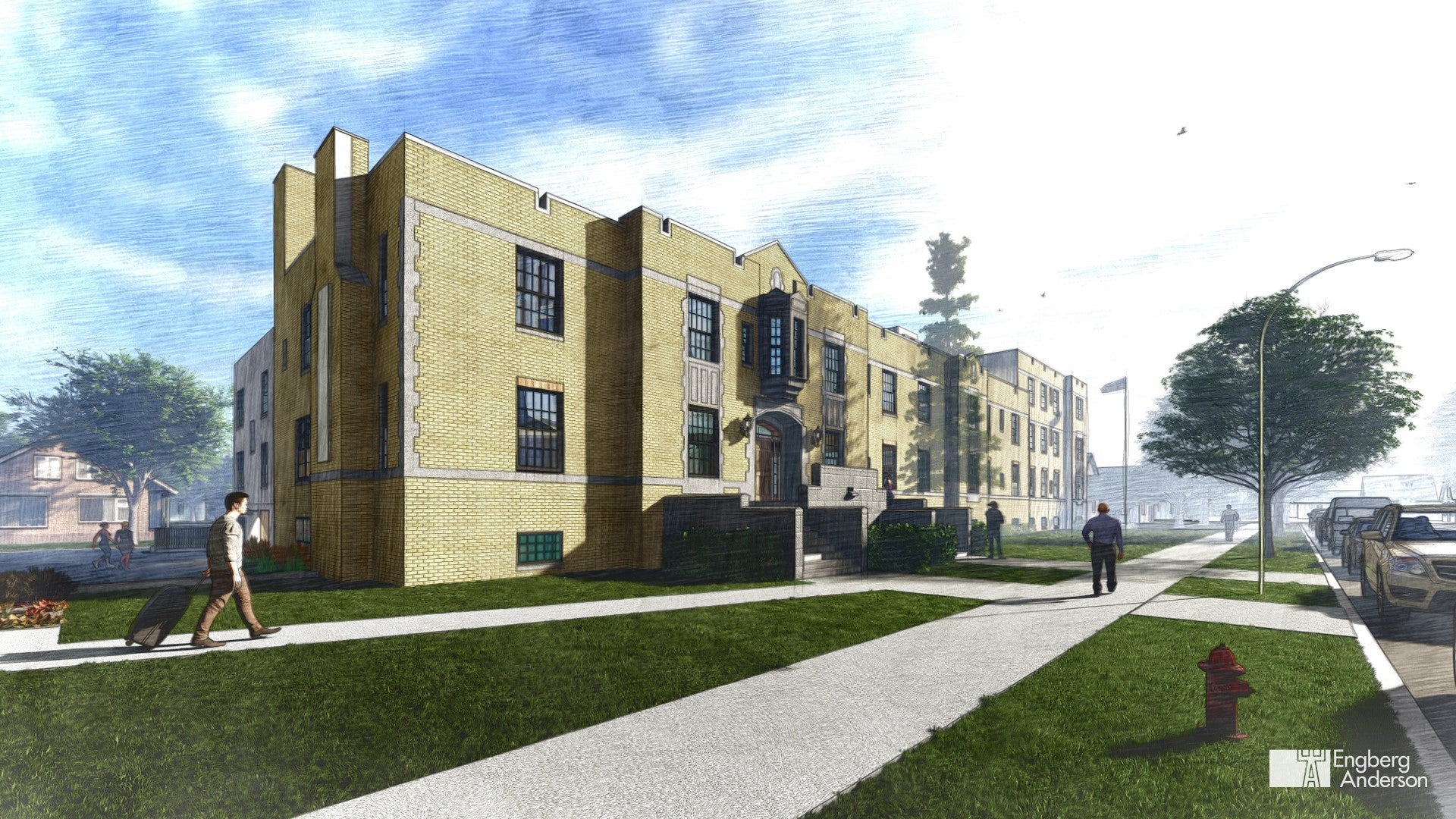A Madison-based group is trying to open temporary housing for children in Dane County aging out of the foster care system, offering them support they often lose upon turning 18.
“We have an epidemic that we’ve been ignoring,” Brandi Grayson, CEO of the nonprofit Urban Triage, told WPR’s “Wisconsin Today.”
About 20,000 young Americans age out of the foster care system annually, according to the National Foster Youth Institute.
Stay informed on the latest news
Sign up for WPR’s email newsletter.
In Dane County, Urban Triage began the Unhoused Youth Initiative in 2022 to support young adults who reach 18 by offering transitional housing services.
“I believe transitional housing facilities like the one that we’re cultivating, it’s needed all through our country,” Grayson said.
The nonprofit is expected to open a renovated space in the fall on Madison’s north side that can temporarily house adults who are between the ages of 18 and 21 and are about to exit the foster care system.
The following has been edited for clarity and brevity.
Kate Archer Kent: Why do Wisconsin communities need this type of transitional housing?
Brandi Grayson: The epidemic really is around the number of children and youth that are housed with Child Protective Services. When children graduate from the system, which is at the age of 18, they are left without anything. A lot of the children that go through or are in foster homes don’t have parents, don’t have relatives, have nowhere to go. Our systems aren’t set up to support youth in transitioning into young adulthood.
I’m super excited that the Dane County Department of Human Services has chosen us as their contractor to do the work. We have experience with housing folks throughout Dane County. We have experience working with populations that are vulnerable. We’re really excited for the opportunity and more so the opportunity to serve our youth.
KAK: When youth get to that really pivotal time around the age of 18, what do you hear?
BG: We work with youth in high school. A lot of the youth say the same thing, “Adults don’t listen to us. There’s nothing for us to do. We don’t know how to get a job. I don’t have the skills to get a job or interview for a job. I don’t know how to fill out applications, or how do I get an appointment? What’s required of me? What should I be doing? How do I manage a bank account?” A lot of our young folks have never written a check.
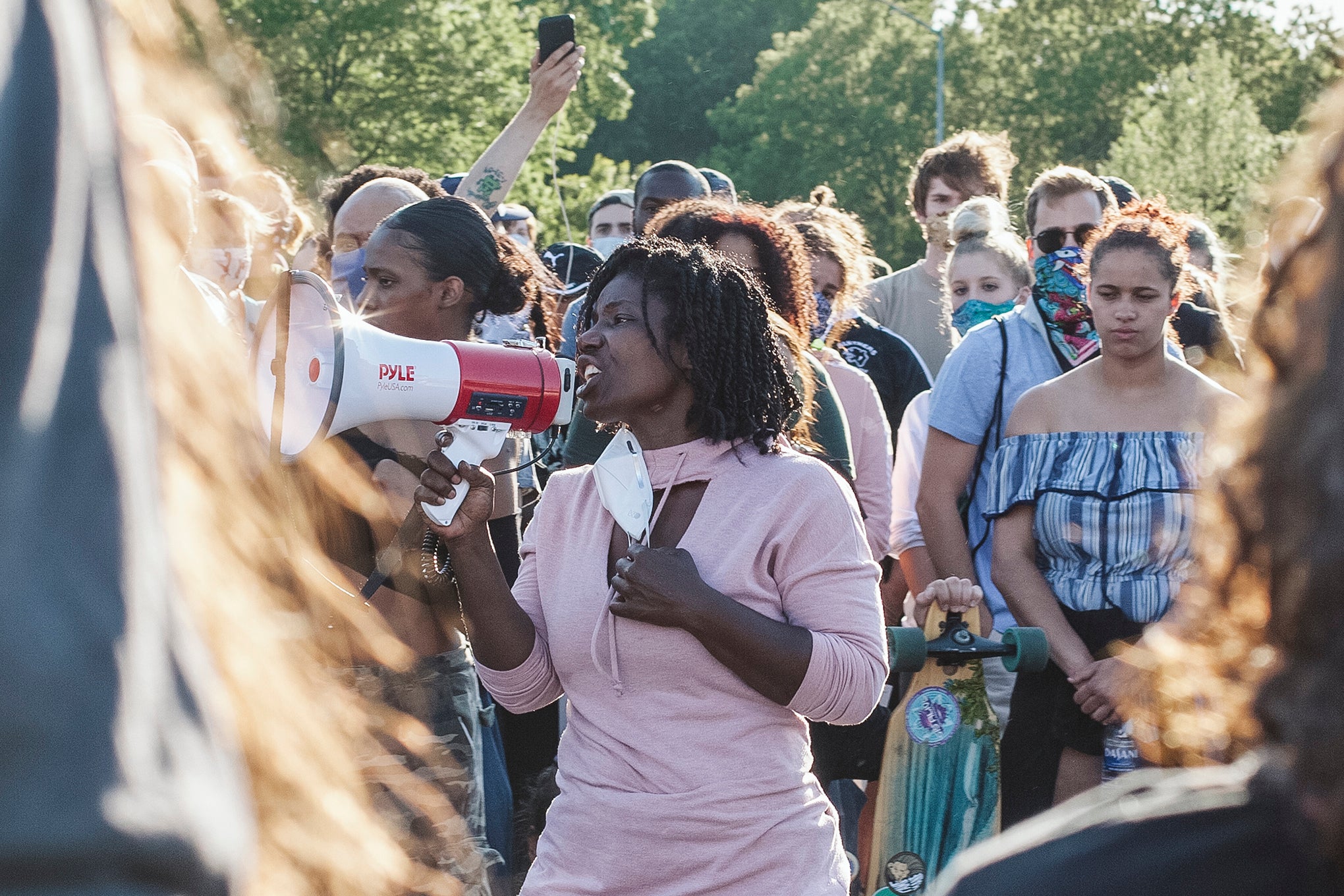
KAK: Are these young adults more susceptible to falling into homelessness?
BG: Absolutely. Homelessness, sex trafficking, drugs, criminal activities. Desperate times require desperate measures.
A lot of our youth fall into unhealthy environments and situations because they are alone and they don’t have the support. They don’t have the guidance. They don’t know what to do. They’re really living by chance a lot of times when they’re aging out of foster care.
KAK: In Wisconsin, age 18, is that a hard and fast age in terms of services?
BG: Generally speaking, yes. I’m speaking from, now, the lens of a foster mom. I provide treatment, foster care to children with high emotional-behavior issues. The only time that I’ve been able to advocate for youth staying longer in the foster care system is when they have cognitive disabilities or physical disabilities. It can’t just be anxiety or depression or suicide. It has to be chronically disabling, and then they can stay in the system, maybe to 19 or 20 if you get a court order.
KAK: What is your Unhoused Youth Initiative aiming to accomplish?
BG: Our Unhoused Youth Initiative really is designed to not only provide the support services and wraparound, but designed to support youth in understanding how to navigate the systems, how to save for emergencies, how to access resources and how to overcome moments of obstacles and stress.
Most important to me is the trauma recovery because a lot of the kids and youth that are coming out of systems in foster care, they’re coming with trauma. They don’t have access or a history of therapy or other services that’s needed.
KAK: What types of resources will be on site?
BG: Young adults aging out of foster care don’t have access to emergency funding, miscellaneous funding, housing navigation, advocacy services, direct access to legal support or support with navigating Social Security or Foodshare or Medicare. They’ll get that from us.
We’ll provide them with transportation and job readiness by connecting with outside agencies who will come in and do training. We’ll do our own in-house training based on our Supporting Healthy Families curriculum that we model all of our programs after.
It’ll be all in-house, along with intensive case management and individualized stability plans and goal setting. We’ll support them in obtaining those goals by working with them daily.
Wisconsin Public Radio, © Copyright 2024, Board of Regents of the University of Wisconsin System and Wisconsin Educational Communications Board.

